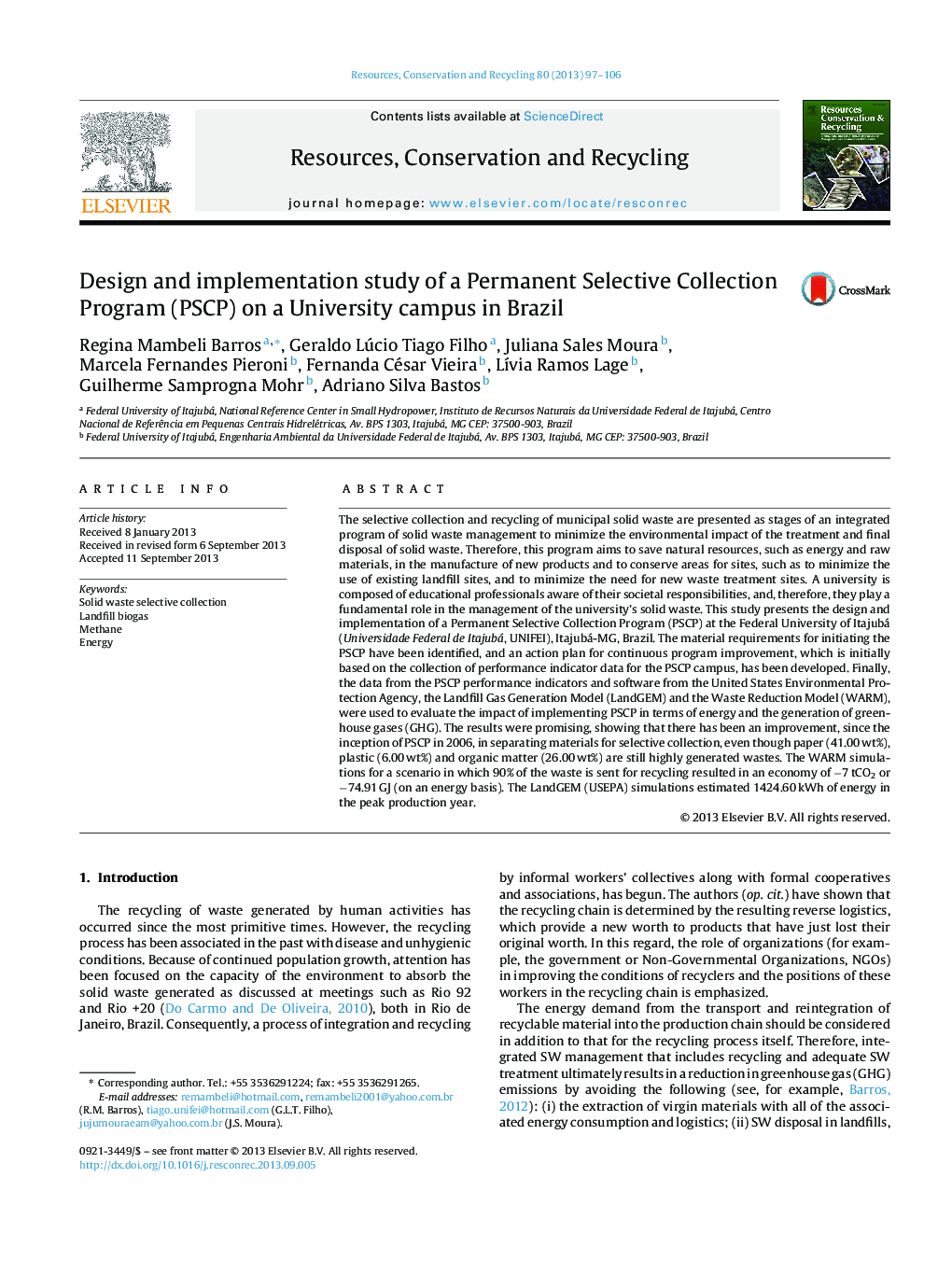| کد مقاله | کد نشریه | سال انتشار | مقاله انگلیسی | نسخه تمام متن |
|---|---|---|---|---|
| 1062995 | 1485709 | 2013 | 10 صفحه PDF | دانلود رایگان |

• The design and implementation of a Permanent Selective Collection Program (PSCP) in a University.
• Design of the materials resource requirements for PSCP, and a PSCP action plan for improvement.
• PSCP action plan is based on the collection of performance indicator data for the UNIFEI Campus.
• Evaluation of the impact of implementing PSCP in terms of energy and the generation of GHG.
The selective collection and recycling of municipal solid waste are presented as stages of an integrated program of solid waste management to minimize the environmental impact of the treatment and final disposal of solid waste. Therefore, this program aims to save natural resources, such as energy and raw materials, in the manufacture of new products and to conserve areas for sites, such as to minimize the use of existing landfill sites, and to minimize the need for new waste treatment sites. A university is composed of educational professionals aware of their societal responsibilities, and, therefore, they play a fundamental role in the management of the university's solid waste. This study presents the design and implementation of a Permanent Selective Collection Program (PSCP) at the Federal University of Itajubá (Universidade Federal de Itajubá, UNIFEI), Itajubá-MG, Brazil. The material requirements for initiating the PSCP have been identified, and an action plan for continuous program improvement, which is initially based on the collection of performance indicator data for the PSCP campus, has been developed. Finally, the data from the PSCP performance indicators and software from the United States Environmental Protection Agency, the Landfill Gas Generation Model (LandGEM) and the Waste Reduction Model (WARM), were used to evaluate the impact of implementing PSCP in terms of energy and the generation of greenhouse gases (GHG). The results were promising, showing that there has been an improvement, since the inception of PSCP in 2006, in separating materials for selective collection, even though paper (41.00 wt%), plastic (6.00 wt%) and organic matter (26.00 wt%) are still highly generated wastes. The WARM simulations for a scenario in which 90% of the waste is sent for recycling resulted in an economy of −7 tCO2 or −74.91 GJ (on an energy basis). The LandGEM (USEPA) simulations estimated 1424.60 kWh of energy in the peak production year.
Journal: Resources, Conservation and Recycling - Volume 80, November 2013, Pages 97–106